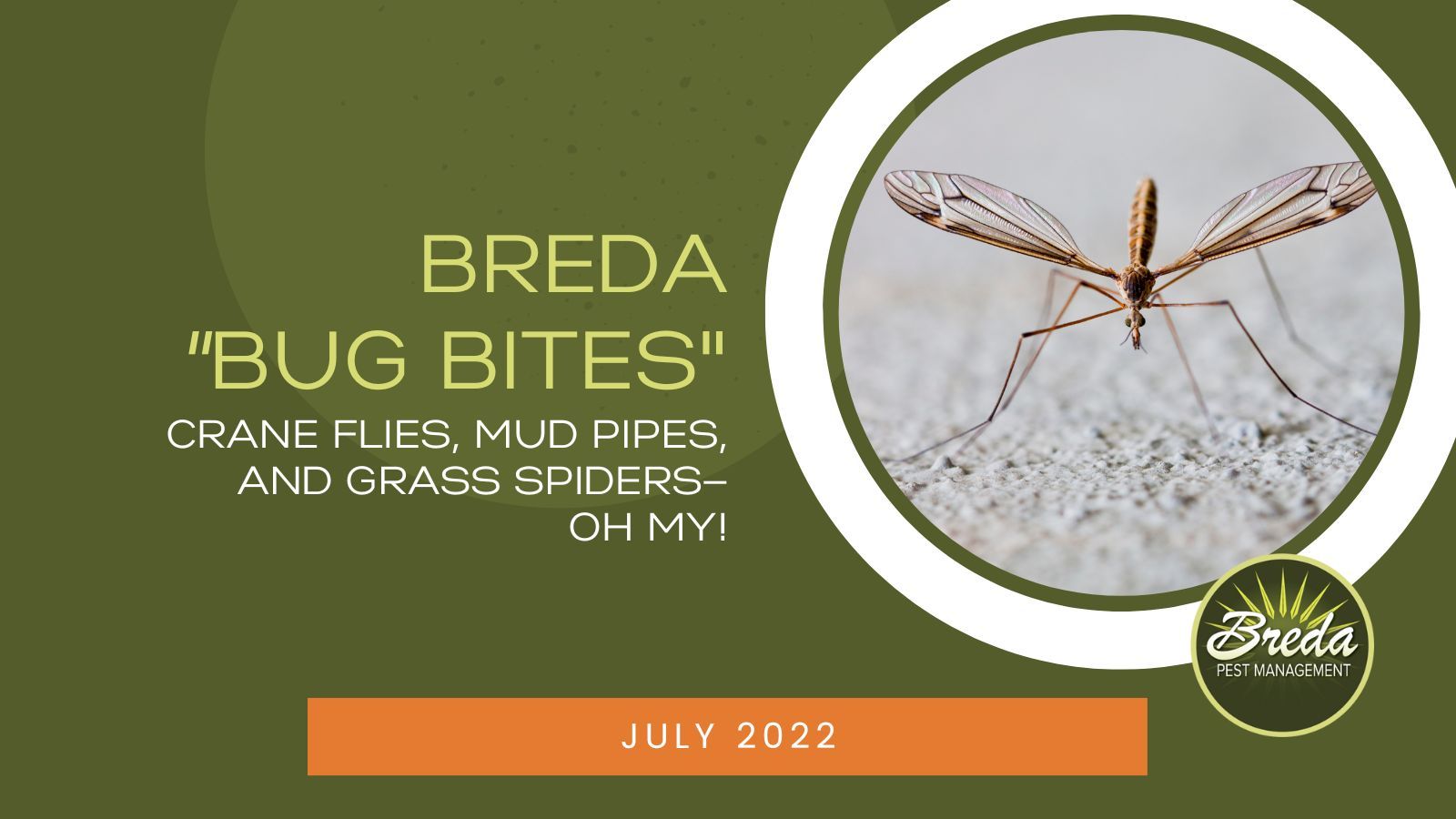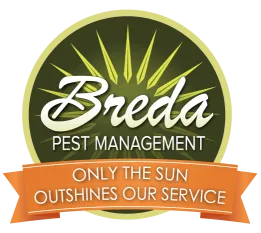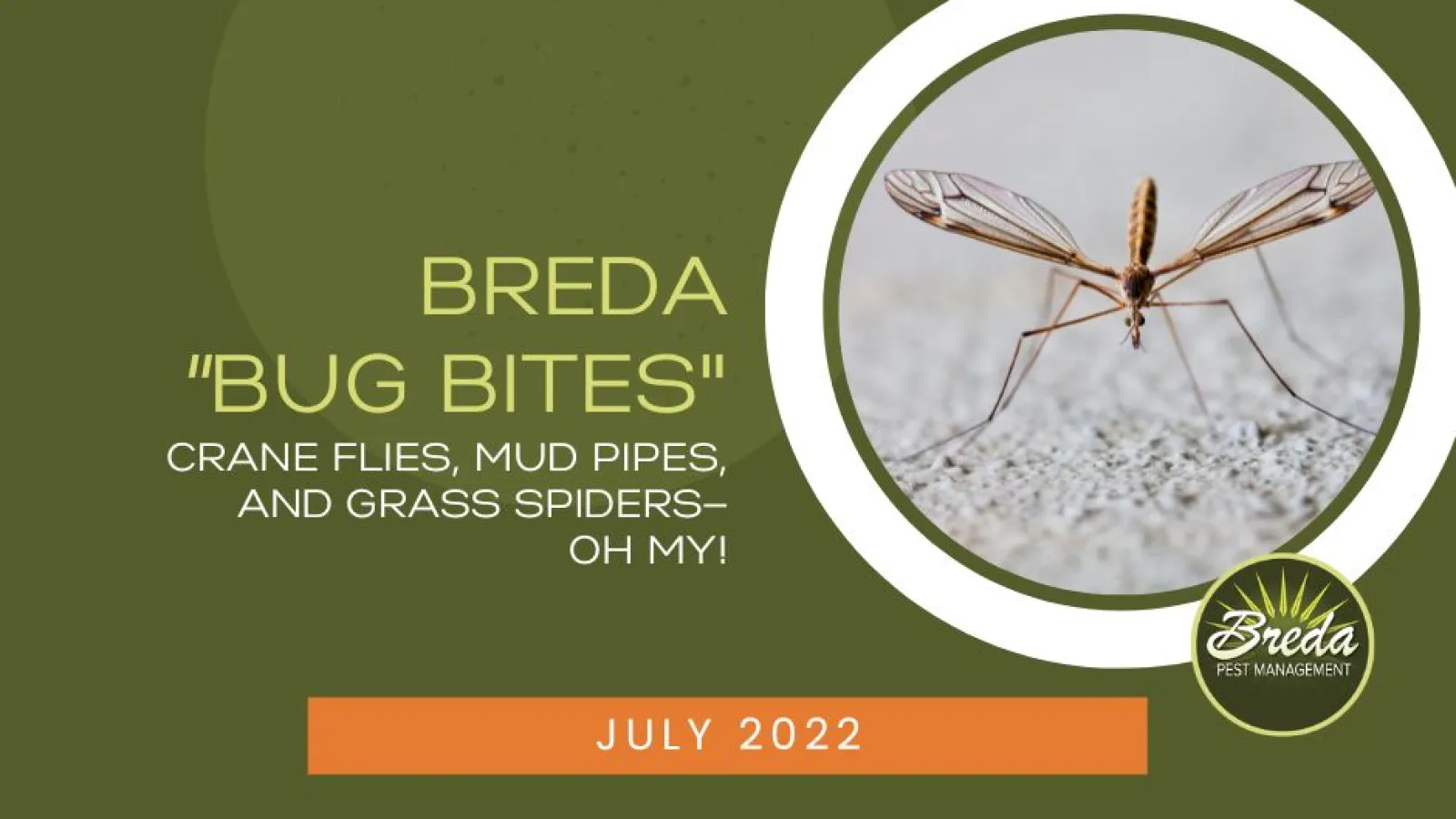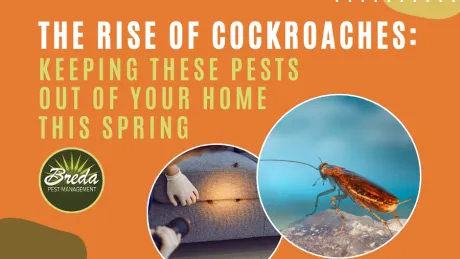
Discover more about weird summer bugs in Georgia
When you step outside in a Georgia summer, you expect to find a few things: humidity, high temperatures, mosquitoes, fire ants, and many other summer grievances. But there might be a few surprises hidden outside that you may be tempted to run back inside over. Before you swear off the summer outdoors, read this month's Bug Bites blog to learn more about some of the weird insects popping up around your home and whether or not you need to fear them.
Did you know that those "mud pipes" you might find on the side of your home or deck are actually mud daubers nests?
When Georgia homeowners find a muddy nest on the exterior of their home, they know they're dealing with some kind of flying insect. Removing the nest is crucial but before you start swinging or scraping, take a moment to inspect the nest so you know what to expect. If the nests resemble organ pipes and have holes, it's likely the nests belonged to mud daubers. These flying insects are related to wasps but are completely harmless to humans. They prefer feeding on spiders (even black widows!) and use their mud nests to lay their eggs. When the eggs grow into adults, they break out of the nest and leave. So if your mud nest has holes and seems empty, it likely belongs to a mud dauber. Even though it's vacant, you still want to remove the nest because other bugs that might not be as innocuous as the mud dauber will move in and start making trouble.
Did you know that giant mosquitoes might actually be crane flies?
We've all run into these summer giants, resting on the exterior of our homes, flocking to outdoor lights at night, and just buzzing around out of nowhere. You can relax a little bit the next time you see one, because you are likely looking at a crane fly, which is not related to mosquitoes at all. Crane flies are large, flying, non-biting insects that flourish during the summer. These bugs are actually beneficial, as they love to feast on decaying matter and can help keep your yard's ecosystem going. The adult crane flies you see zipping around will only live for a couple of days, and if you want to keep their population down around your home, just make sure to keep your exterior lights off as much as possible and they won't be drawn to your yard.
Did you know that chigger bites can take over a week to heal?
Can you live in the South and not have at least one chigger experience to talk about? Chiggers are a mite whose bite causes a severely itchy rash that can appear within a couple of hours after being bitten. In some cases, chigger rashes can take a week or more to heal, which sounds like a small eternity when you're constantly scratching at a red, welty rash. When chiggers attach themselves to a host, they inject their saliva into the skin which then liquifies the skin cells. Chiggers can attach and feed for up to four days before dropping off! If you are out in the woods or grassy areas a lot this summer, add a "chigger check" to your "tick check" routine and wash your body with warm, soapy water if you suspect you have some hitchhiking chiggers. As a precaution, wash any clothing you wear outdoors in hot, soapy water, too, since chiggers are not against sticking around on your clothing instead of your skin.
Did you know that the spider webs you might see in the grass in the morning belong to a helpful spider?
If you tend to get outside before the hot sun really sets in, you've likely seen shimmering patches of spider webs in your lawn. These belong to the aptly-named grass spider, which is a completely harmless insect that spends its days feasting on bugs in your lawn. When the morning dew dissipates, it might appear that the spider webs disappear too, but never fear—the grass spiders are still there!
If you find yourself needing pest control and want it handled thoroughly, don't hesitate to give us a call. The BREDA Guarantee promises to fix your pest problem and keep it fixed—no matter the circumstances. Schedule a consultation online or give us a call at 770-466-6700.




